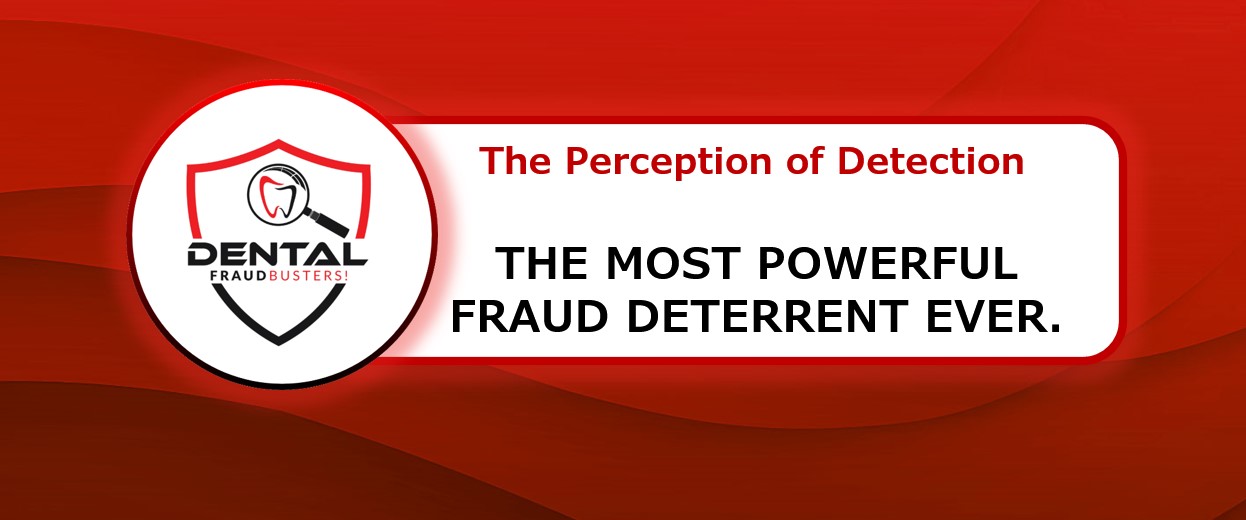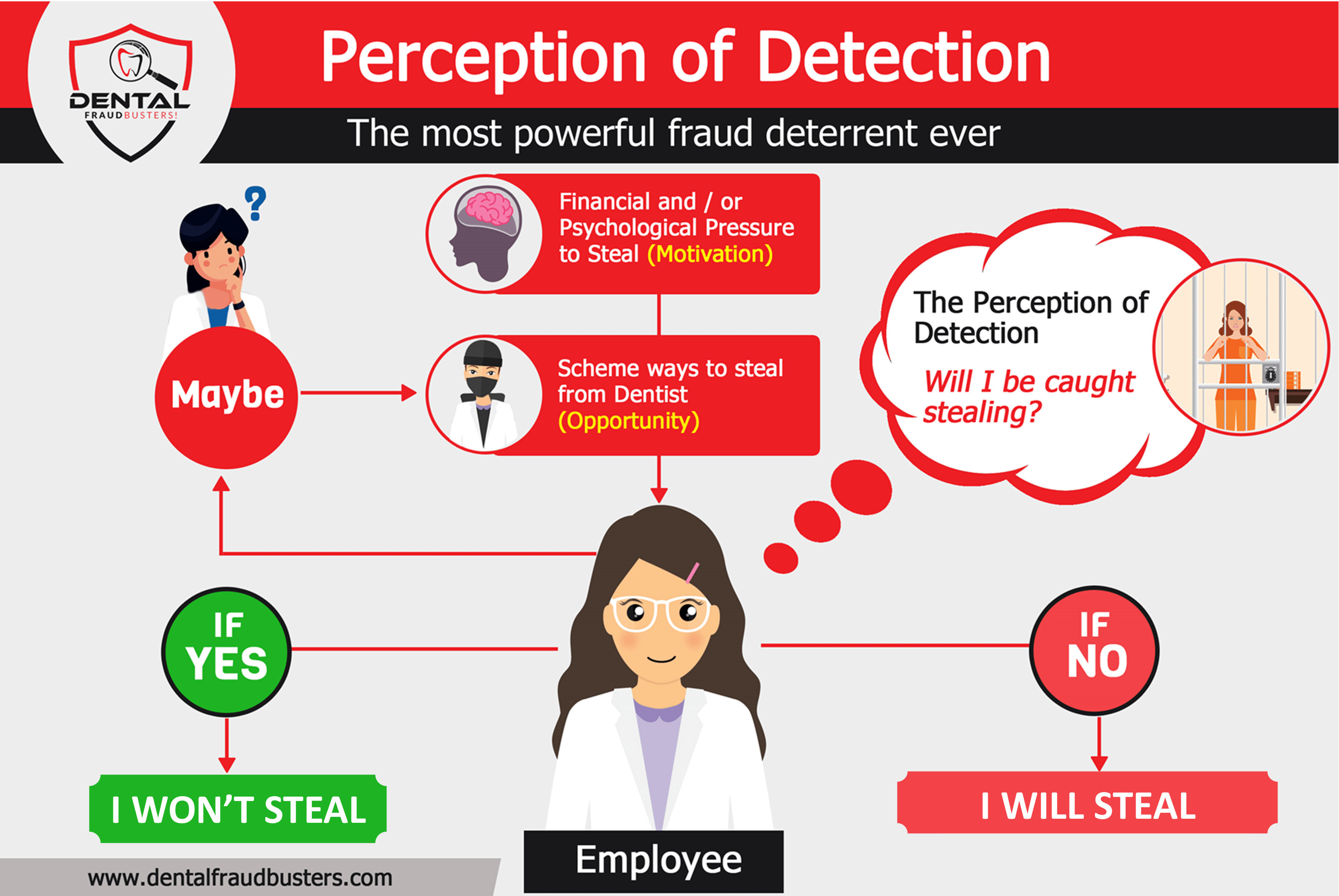It’s the most powerful fraud deterrent; ever.
The Perception of Detection

Imagine you are in a hurry and driving much faster than usual. You’re late for an important event that cannot start without you.
Suddenly, there’s you see this guy holding up a sign with the words “COPS AHEAD” in big letters.
Does your foot instinctively ease off the gas pedal?
You may ask yourself: What’s going on? Is there a speed trap? Is that guy is nuts?
To be cautious and thinking about a speed trap, you slow down for the mile or so.
You were speeding, which has consequences.
You saw the sign and perceived that if you did not slow down, there’s a chance of a ticket.
That’s the Perception of Detection at work.
HANDS DOWN – The Perception of Detection is the #1 deterrent.
In simple terms; the perception of detection means that when people believe they will be caught stealing, they are less likely to do it.
While stealing, every dishonest employee will ask this question: “Will I be caught?”
If they answer YES, they are less likely to continue stealing.
If they answer NO, they will steal. It’s that simple.
This notion has been around since the 18th century when English philosopher Jeremy Bentham originated his classic criminology theory, which says that a person’s propensity to commit a crime is determined by his or her perception of the related risks and rewards.
Large retail stores know this and use extensive networks of security cameras and floorwalkers to increase the perception that shoplifting can be be detected.
Mock cameras that look like the real thing also deter theft.
things that can increase the perception of detection in your practice.
Exhibit ethical leadership as the practice owner
If you consistently uphold professional ethics and integrity, your employees will be more inclined to uphold the same values.
Set standards and follow them, impeccably.
The moment you appear unconcerned with ethics or integrity, your employees will follow suit.
Do not pocket cash from the practice deposit, cut corners with insurance, or claim personal items as a business expense.
Separate business relationships from personal relationships. Maintain cordial employer-employee relations.
Always exercise impartiality when dealing with employee matters.
See a Typo or an Error? Report it.
Be involved with THE business affairs of your practice.
Attend business courses and seminars along with your employees.
Learn how to use your practice management software.
Your employees should not perceive that you do not understand the financial modules of your practice management software.
Take software training courses with your staff. At a minimum you should be able to generate and understand the management reports that your software provides.
Don’t be the first person to leave the practice every day.
Install Security Cameras
Security cameras can protect you, your employees and patients. If you do not have security cameras, have them installed by a professional and in accordance with any federal or local laws that apply.
Implement a Computer UsE Policy
The policy should include a reminder to each employee that their emails, telephone calls and Internet travels can be, or are being, monitored by the practice.
The policy must notify each employee of practice management software “audit logging”.
Almost all dental practice software maintains some form of an audit log. Your employees must know that audit logging exists and restricted from accessing it.
Set up your dental software to restrict employee access to the audit log.
Report an Error or Typo.
If you see an error or spot a typo, please let me know.
Send your comments directly to Bill Hiltz using the form below.


